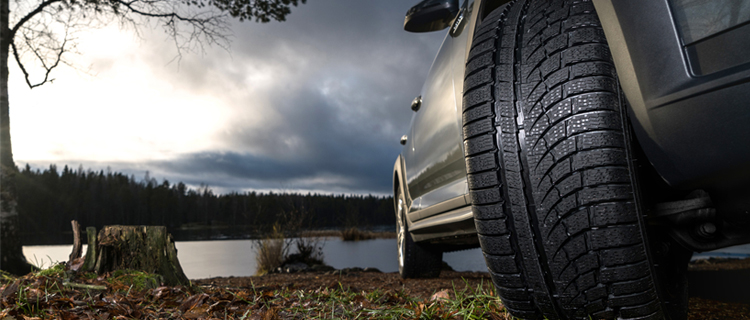All Weather Tire FAQ: Expert Answers To Consumer Questions
August 27, 2021
Tires

Are all-weather tires right for your family? Today’s post answers 4 of the most common consumer questions about all-weather tires to help you make the right choice.
Read on or contact your local TIRECRAFT to begin a free all-weather tire consultation straight away.
What’s The Difference Between All-Weather Tires And All-Seasons?
While these two tire types may sound synonymous, they’re really quite different.
Though they’re both designed to work in wet, dry, warm, and cold conditions, all-weather tires have several unique features that enhance winter performance, including:
- Aggressive, “blocky” tread—Whereas all-season tire treads tend to be smooth and straight in order to repel water and grip the road in warm weather, all-weather tire treads are deep, jagged, and “blocky,” with heavy siping to add grip and prevent hydroplaning in snow and slush.
- Specialized tread compounds—Whereas all-season tires stiffen up in temperatures below +7C, all-weather tire tread compounds are designed to stay soft, flexible, and grippy through the worst Canadian winters.
Furthermore, unlike all-seasons, all-weather tires bear the three-peak mountain snowflake symbol, sometimes known as the “alpine symbol,” which indicates that they have passed the ASTM F-1805 Driving Traction Test.
Who Should Use All-Weather Tires?
Generally speaking, all-weather tires are a great choice for drivers who:
- Experience milder winter weather
- Live in urban centres where roads are well-maintained year-round
- Prefer to run one set of tires to save on changeover and storage costs
For more personalized advice and all-weather tire recommendations, get in touch with your local TIRECRAFT. Every consultation is 100% free and there’s never any pressure to buy.
What Are The Benefits Of Choosing All-Weather Tires?
- Tire savings—Running one set of all-weather tires effectively halves your annual tire budget
- Storage savings—When you choose all-weather tires, you never have to worry about paying for storage at a tire depot, or finding space in your garage or condo locker
- Service savings—Running one set of all-weather tires means you can skip seasonal changeover service fees
- Fuel savings—Many all-weather tires are low-rolling resistance, which means your vehicle will use less energy to keep the tires rolling, potentially saving you hundreds at the pump each year
- Good tread life—Many all-weather tires have tread warranties exceeding 80,000km
What Are The Best All-Weather Tires?
Because tire design is such a balancing act, with certain features coming at the expense of others, there is no universal “best” all-weather tire—it really comes down to what’s best for you.
That said, there are plenty of all-weather tire rankings out there that can give you an idea of where to begin. Take the Automobile Protection Association, for instance, who recently crowned the Nokian WR G4 SUV, Toyo Celsius CUV, and Firestone Weathergrip as their top-3 all-weather tire picks.
You can find all three of the APA’s top all-weather tire picks, along with personalized advice and tire recommendations, by contacting your local TIRECRAFT.
Free All-Weather Tire Consultations—Contact TIRECRAFT
Use the Find a TIRECRAFT tool to get in touch with all-weather tire experts near you.
Back

